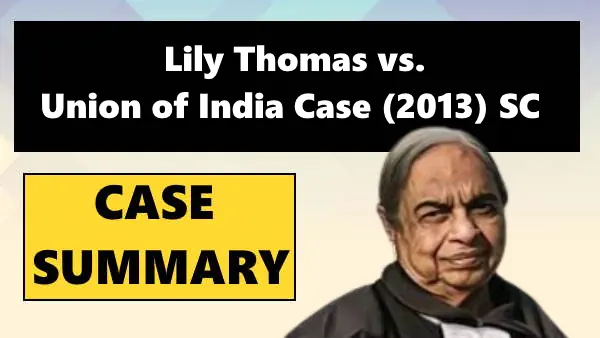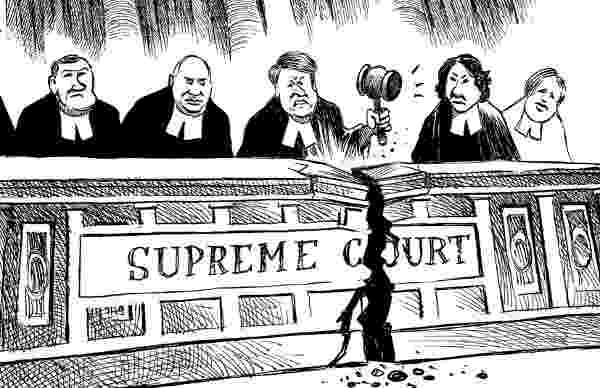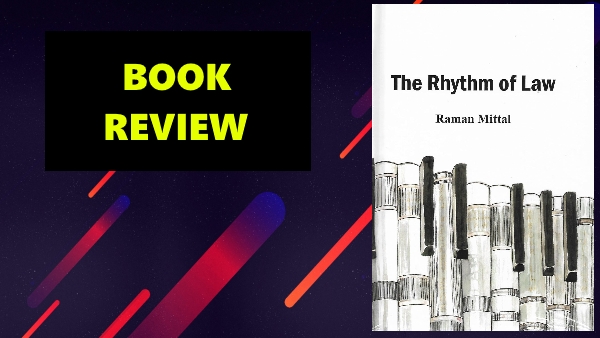Lily Thomas vs. Union of India case is considered a landmark judgment in India. The Supreme Court of India took a preventive measure in order to avoid solemnizing the second marriages without a proper and legal dissolution of the first marriage. There were many men who were converting their religion to Islam in order to get into marriage for the second time without a legal divorce.
Noting all such events, the Supreme Court of India stated that any such marriage (second) would be considered being void until proper divorce has been obtained by the first wife in accordance to the Hindu Marriage Act, 1955.
Thus, after this judgement it was held that if a marriage is constituted without obtaining a proper and legal divorce from the first marriage then such a second marriage will be considered being void as per law, and if a man if found doing so then the husband will be held liable under section 494 and 495 of the Indian Penal Code (IPC), 1860 for the offence of bigamy.
RELEVANT PROVISIONS:
- Hindu Marriage Act, 1955–Section 11
- Indian Penal Code, 1860–Section 494
- Hindu Marriage Act, 1955–Section 17
FACTS OF LILY THOMAS CASE:
- A Marriage was constituted between Mrs. Sushmita Ghosh & Mr. Gyan Chand Ghosh on 10th May 1985, following all Hindu rituals and traditions.
- A month later, on April 22nd her husband conveyed to her he was no longer willing to live with her, and thus, she should agree for getting a divorce with mutual consent.
- Since, it was a newly wedded couple the petitioner i.e. Mrs. Sushmita Ghosh appealed that she’s willing to live with her husband, and thus, matter of divorce should not arise.
- The husband told her he has converted to Islam and would marry Vinita Gupta.
- Later on, the husband of the petitioner pronounced that he’s converting his religion to Islam for which he got a certificate on 17th June 1992, and thus would marry again with a lady named Vinita Gupta.
- Therefore, the petitioner i.e. Mrs. Sushmita Ghosh prays her husband should be abstained from marrying Vinita Gupta.
LEGAL ISSUES IN LILY THOMAS V. UOI:
- Should there be a uniformed Civil Code regulating all the Citizens?
- Can a Hindu male be allowed to enter another marriage after converting to Islam?
- Would a Hindu male be held liable for the offence of Bigamy as per section 494 of the Indian Penal Code (IPC), 1860?
CONTENTIONS:
Issues raised by the Petitioner:
- The petitioner stated that since marriage is considered a sacred institution, then how come a mere religious conversion to Islam can approve bigamy as it is against the woman’s freedom to face such bigamous activities.
- The plea presented before the SC regarding the male polygamy among the Muslim law to be stated as Unconstitutional.
- A prayer was instituted before the Honorable Court to establish a uniformed Civil Code which shall regulate all the citizens overall, because of so many religious personal laws present in the country.
- A huge number of women filed petitions before the Supreme Court of India and in many High Court’s of the country in order to declare polygamy present in Muslim law as Unconstitutional.
- There was a need to revise the Muslim laws as the prestige of polygamy was in contrast to the integrity of women in the country as it was a very disrespectful practice that was being carried out.
- A uniformed Civil Code was the need of the hour in the country as it will prevent any personal religious laws to violate the Fundamental Rights of a citizen.
Advocate Lily Thomas presented before the Supreme Court of India all the above-stated contentions on behalf of all the aggrieved women in the country.
Issues raised by the Respondent:
- The State was well pleased and approved the plea filed by the petitioner.
- Therefore, many revisions were made regarding this context.
RATIO DECIDENDI:
The Bench of Judges in this case comprised the following Chief Justices:
- A.K.Patnaik,
- Sudhansu Jyoti Mukhopadhaya
The bench stated that if a person has a living spouse and the marriage have not been legally dissolved, and such person marries for the second time, then the second marriage will be considered void in the eyes of law, as per the Hindu Marriage Act, 1959.
Such marriages will not be granted legal authentication/approval as there void and as per the Section 17 of the said Act that deals with the offence of Bigamy. And therefore, any person held liable for bigamy will be punished under the punishment of the offence provided in section 17 of the Hindu Marriage Act, as well as per section 494 and section 495 of the Indian Penal Code (IPC), 1860.
Thus, if a woman complained about her husband for committing the offence of Bigamy (marrying again even after the persistence of the first marriage) by converting his religion, then such a person shall be held liable and will be dealt as the offence of Bigamy stated in the Hindu Marriage Act, 1959.
CONCLUSION:
Lily Thomas vs. UOI judgment is very crucial for all the women across the nation, as men were taking an advantage of religious conversion to marry again and lead a life with over one wife.
Bigamy in terms of law, is referred as an offence in which a person marries again even though the first marriage has not been legally dissolved. For a long period, many married men across the country were using religious conversion to practice Bigamy when their own person religious laws did not allow so.
Later on, the interpretation provided by the apex court of the country in concern to the section 494 of the Indian Penal Code, 1869 was a remarkable effort the motive of which was to be upheld the justice system in the country.
The court held that it is essential that there should be polyphony between two laws of a country just as it’s essential between two distinct communities of the country.
A uniformed Civil Code was enacted for all the citizens of the country, just as the petitioners claim, because there will always in distinction between different communities because of differences in faith and beliefs, and thus, in order to avoid such loopholes the uniformed Civil Code was brought into force
Found Lily Thomas vs. Union of India case summary useful? We have a bunch of useful topics from constitutional law that will help you in your preparation here >>> CONSTITUTIONAL LAW
Check out our YouTube Channel for free legal videos >>> LAW PLANET YT






